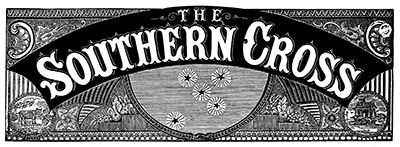The UN’s top court orders Israel to prevent genocide in Gaza
The International Court of Justice (ICJ) in The Hague has ordered Israel to take “all measures” to prevent genocidal acts in Gaza, but stopped short of calling for a ceasefire in the ongoing war with Hamas.
The court issued its interim ruling on Friday in response to a case brought by South Africa, accusing Israel of genocide in Gaza. The case was based on the 1948 genocide convention, which defines genocide as “acts committed with intent to destroy, in whole or in part, a national, ethnical, racial or religious group”.
The court said that it was not necessary to prove that Israel had committed genocide, but only that some of the alleged acts were capable of falling within the scope of the convention. It also said that it had prima facie jurisdiction to hear the case, rejecting Israel’s argument that the court had no authority to intervene in the matter.
The court ordered Israel to “take all measures within its power” to prevent and punish the direct and public incitement of genocide, to ensure that its military operations do not result in the physical destruction of Gaza, and to allow the entry of humanitarian aid and medical supplies into the territory.
The court also urged both parties to respect international humanitarian law and human rights law, and to refrain from any action that could aggravate the dispute.
The ruling is not final and binding, but rather provisional and intended to preserve the rights of the parties until the court delivers its final judgment, which could take years. However, the ruling could have significant political and legal implications, as it could increase the pressure on Israel’s allies and military backers, such as the US, to rein in its actions in Gaza.
The ruling also represents a rare intervention by the court in an ongoing armed conflict, and a recognition of the plight of the Palestinians in Gaza, who have been suffering from a devastating humanitarian crisis and a blockade imposed by Israel since 2007.
The case was initiated by South Africa on 29 December 2023, following the 7 October attacks by Hamas, which killed about 1,200 Israelis, mainly civilians, and took 240 hostages, of whom 129 are still being held captive. Israel launched a military campaign in Gaza on 8 October, which has killed almost 26,000 Palestinians, mostly women and children, and displaced about 85% of the 2.3 million population.
Israel has denounced the case as “meritless” and “politically motivated”, and accused the court of being biased and antisemitic. Israel’s prime minister, Benjamin Netanyahu, has vowed to continue the war until Hamas is defeated and the hostages are freed.
South Africa has welcomed the ruling as a “victory for justice and human rights”, and called on Israel to comply with the court’s orders. South Africa’s foreign minister, Naledi Pandor, who was present at the court, said that the case was not aimed at demonizing Israel, but rather at protecting the Palestinians from genocide.
The court is expected to hold further hearings on the merits of the case, where both parties will have the opportunity to present their arguments and evidence in detail. The court will also consider whether to impose any reparations or compensation for the victims of the alleged genocide.

